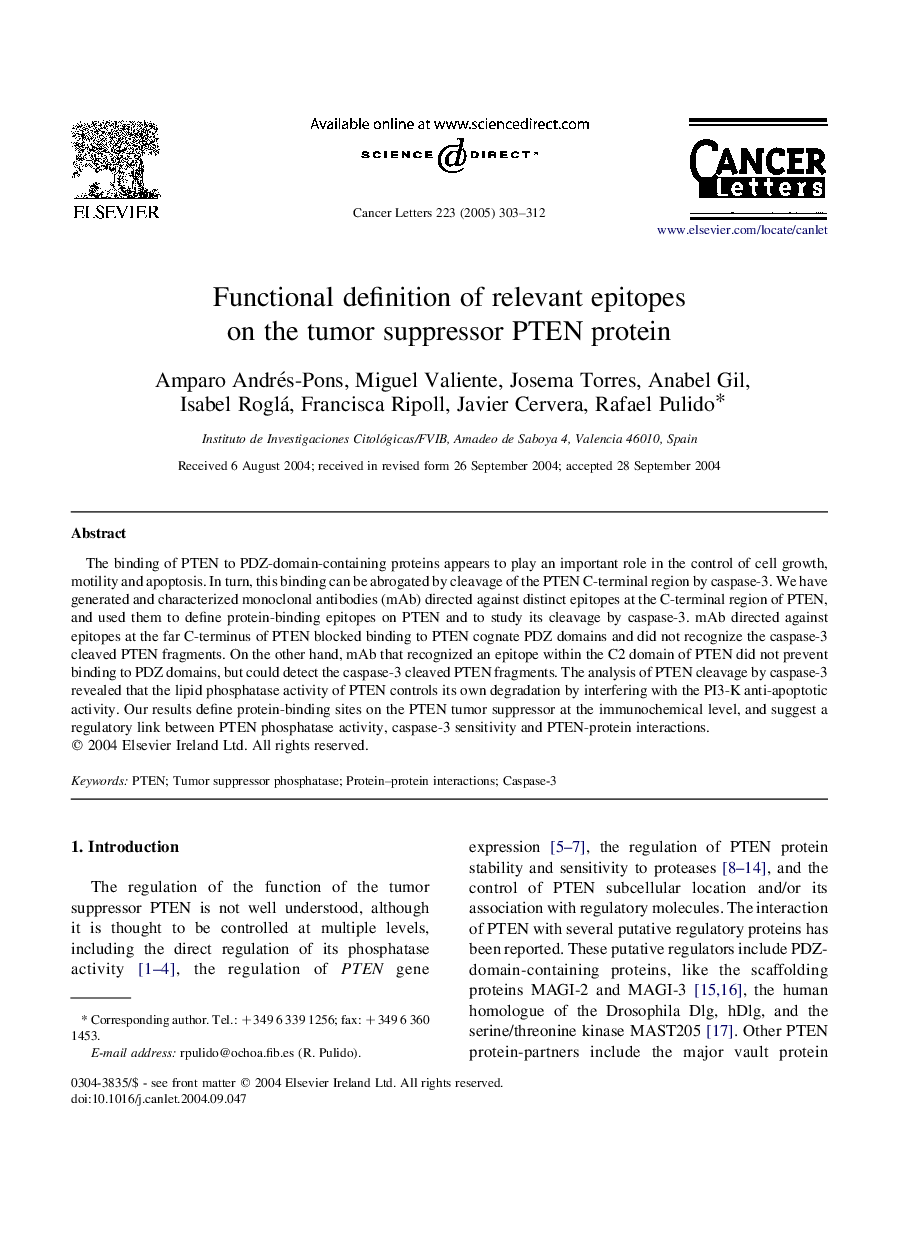| Article ID | Journal | Published Year | Pages | File Type |
|---|---|---|---|---|
| 10900235 | Cancer Letters | 2005 | 10 Pages |
Abstract
The binding of PTEN to PDZ-domain-containing proteins appears to play an important role in the control of cell growth, motility and apoptosis. In turn, this binding can be abrogated by cleavage of the PTEN C-terminal region by caspase-3. We have generated and characterized monoclonal antibodies (mAb) directed against distinct epitopes at the C-terminal region of PTEN, and used them to define protein-binding epitopes on PTEN and to study its cleavage by caspase-3. mAb directed against epitopes at the far C-terminus of PTEN blocked binding to PTEN cognate PDZ domains and did not recognize the caspase-3 cleaved PTEN fragments. On the other hand, mAb that recognized an epitope within the C2 domain of PTEN did not prevent binding to PDZ domains, but could detect the caspase-3 cleaved PTEN fragments. The analysis of PTEN cleavage by caspase-3 revealed that the lipid phosphatase activity of PTEN controls its own degradation by interfering with the PI3-K anti-apoptotic activity. Our results define protein-binding sites on the PTEN tumor suppressor at the immunochemical level, and suggest a regulatory link between PTEN phosphatase activity, caspase-3 sensitivity and PTEN-protein interactions.
Related Topics
Life Sciences
Biochemistry, Genetics and Molecular Biology
Cancer Research
Authors
Amparo Andrés-Pons, Miguel Valiente, Josema Torres, Anabel Gil, Isabel Roglá, Francisca Ripoll, Javier Cervera, Rafael Pulido,
